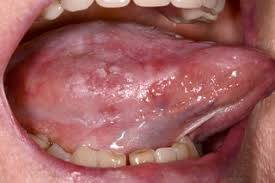Oral cancer refers to cancers that develop in the tissues of the mouth or throat. It includes cancers of the lips, gums, tongue, cheeks, floor of the mouth, hard palate, and the oropharynx (the back of the throat). Early detection is crucial for successful treatment, as the prognosis varies significantly based on the stage at which it is diagnosed. Here’s an overview of the causes, signs, effects, and solutions for oral cancer.
---
Causes of Oral Cancer
1. Tobacco Use: Smoking cigarettes, cigars, or pipes, as well as using smokeless tobacco products (chewing tobacco), significantly increases the risk of developing oral cancer.
2. Alcohol Consumption: Heavy and frequent alcohol consumption is a major risk factor. The combination of tobacco and alcohol use significantly raises the risk.
3. Human Papillomavirus (HPV): Certain strains of HPV, especially HPV type 16, are linked to oral cancers, particularly in the oropharyngeal region.
4. Age: The risk of oral cancer increases with age, with most cases occurring in people over 50.
5. Sun Exposure: Excessive sun exposure, particularly to the lips, can lead to cancers of the lip.
6. Poor Oral Hygiene: Long-term irritation from poor oral hygiene, such as untreated dental issues, can contribute to the risk of oral cancer.
7. Chronic Irritation: Constant irritation from rough teeth, ill-fitting dentures, or oral appliances can increase the risk.
8. Diet: A diet low in fruits and vegetables may increase the risk, as these foods contain protective antioxidants and nutrients.
9. Weakened Immune System: Conditions or treatments that weaken the immune system can increase susceptibility to cancer.
---
Signs and Symptoms of Oral Cancer
1. Sore or Ulcer: Persistent sores or ulcers in the mouth that do not heal (lasting more than two weeks).
2. White or Red Patches: White (leukoplakia) or red patches (erythroplakia) on the gums, tongue, or lining of the mouth.
3. Lumps or Growths: Swellings or lumps in the mouth, on the lips, or in the throat.
4. Pain: Unexplained pain or tenderness in the mouth, throat, or jaw.
5. Difficulty Swallowing: Trouble swallowing or a sensation that something is caught in the throat.
6. Change in Voice: Changes in the voice, including hoarseness or speech difficulties.
7. Numbness: Numbness or loss of feeling in any part of the mouth or face.
8. Bleeding: Unexplained bleeding in the mouth.
9. Weight Loss: Unintentional weight loss can occur in advanced cases.
---
Effects of Oral Cancer
1. Pain and Discomfort: Oral cancer can cause significant pain and discomfort, affecting the ability to eat, speak, and swallow.
2. Difficulty Eating and Drinking: Tumors can obstruct normal swallowing and eating, leading to nutritional deficiencies.
3. Disfigurement: Depending on the location and treatment, oral cancer may require surgical removal of tissue, leading to cosmetic changes.
4. Spread of Cancer: Oral cancer can metastasize (spread) to nearby lymph nodes or other parts of the body, complicating treatment and worsening prognosis.
5. Psychosocial Impact: The diagnosis and treatment can lead to anxiety, depression, and social isolation due to changes in appearance and function.
6. Economic Burden: Treatment can be costly and may lead to financial strain due to medical expenses and loss of income.
---
Solutions and Treatments for Oral Cancer
1. Regular Dental Checkups: Routine dental exams can help with early detection of oral cancer. Dentists can screen for abnormal lesions or changes in the mouth.
2. Biopsy: If suspicious lesions are found, a biopsy is necessary to determine if cancer is present.
3. Surgery: Surgical options may include removing the tumor and some surrounding tissue or, in advanced cases, partial or total removal of the affected area.
4. Radiation Therapy: This may be used to kill cancer cells or shrink tumors, often used post-surgery or for tumors that are difficult to remove.
5. Chemotherapy: This systemic treatment uses drugs to kill cancer cells and may be used in conjunction with surgery and radiation.
6. Targeted Therapy: Some cancers may be treated with targeted therapy that focuses on specific molecular targets associated with cancer.
7. Immunotherapy: Emerging treatments aim to boost the body’s immune response against cancer cells.
8. Nutritional Support: A dietitian may provide guidance on maintaining nutrition during treatment, especially if eating is difficult.
9. Pain Management: Medications and therapies to manage pain associated with oral cancer and its treatment.
10. Counseling and Support Groups: Psychological support can help patients cope with the emotional impact of a cancer diagnosis and treatment.
11. Lifestyle Changes:
Quit Smoking: Stopping tobacco use can significantly reduce the risk of developing oral and other types of cancers.
Limit Alcohol: Reducing alcohol consumption can also lower risk.
12. HPV Vaccination: Vaccination against HPV can reduce the risk of HPV-related cancers, including oral cancer.
---
Oral cancer can have severe implications, but early detection and treatment significantly improve outcomes. Maintaining good oral hygiene, avoiding tobacco and excessive alcohol use, and having regular dental checkups are critical steps in reducing the risk of oral cancer. If any symptoms are noticed, it’s essential to consult a healthcare professional promptly for evaluation.


